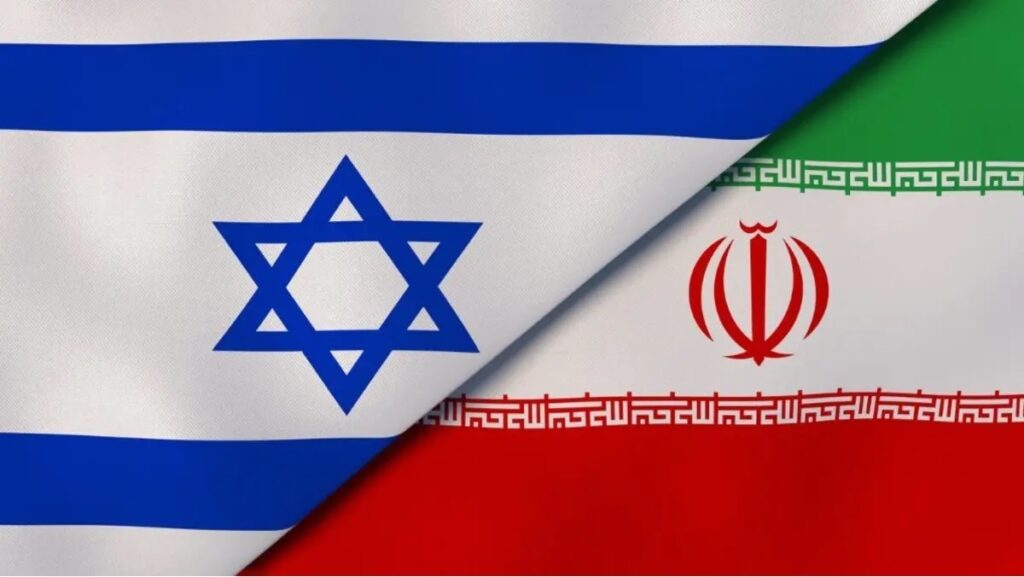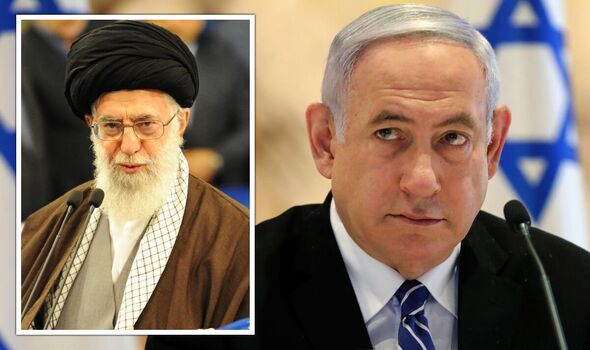With the onset of the Abraham Accord, there are hopes of peace in the region and it is the responsibility of the two countries to sort out their differences and not turn them into further disputes.

Acrimony between Iran and Israel, it may be hard to imagine that the countries ever had friendly relations and cooperation on multiple levels. Yet they were once friends and allies. And even after the Islamic Revolution of 1979, when Iran abruptly severed diplomatic ties with Israel, military cooperation continued for several years as Iran turned to Israel to arm it during its devastating war with neighbouring Iraq. Even today, as the tension between the two countries, continues to mount and the danger of a direct confrontation appears genuine, one can reasonably say the two countries were never meant to be enemies. They share no common borders and have no territorial disputes.
Moreover, Jews have lived in Persia (as Iran has been known throughout history) for some 2,700 years, and their tradition remembers it as a place of refuge – in particular under the reign of the emperor Cyrus the Great in the sixth century BCE. Each country had its own reasons to want relations with the other. For Iran, Israel was perceived as a vehicle (via the American-Jewish community) for gaining the sponsorship of the United States, which was seeking allies in its struggle for both regional and global dominance with the Soviet Union.
Today, Iran’s rivalry with the Arab world is in large part framed in religious terms – the Shi’ite minority (led by Iran) versus the Sunni majority (dominated by Saudi Arabia). But in the 1950s and ’60s, Iran saw itself threatened by the spread of Soviet-sponsored pan-Arab nationalism, whose mascot was Gamal Abdel Nasser, leader of Egypt’s revolution in 1952.
From Israel’s point of view, Iran fit into the “Periphery Doctrine” of Israel’s founding prime minister, David Ben-Gurion – by which Israel tried to cultivate relations with the non-Arab enemies of its enemies. These included Iran, Turkey and Ethiopia, as well as the Maronite Christians in Lebanon and the Kurds in Iraq. Relations were far-ranging but to a large extent given a low profile. Iran sold Israel oil when none of the other oil-rich states in the region would do so. It also became a major importer of Israeli goods and services. These included agricultural, residential, medical and infrastructure projects and the training Israel’s intelligence agencies provided to the shah’s notoriously cruel secret police, Savak.
Hard as it may be to imagine now – as Prime Minister Benjamin Netanyahu leads a full-court press to convince the United States to withdraw from the 2015 nuclear accord with Iran – but a mere two years before the Islamic Revolution, Israel and Iran cooperated on “Project Flower,” a joint plan to develop a missile that could carry a nuclear warhead. During the ’60s and ’70s, Israel had so many contractors and military advisers resident in Tehran, a Hebrew-language school was opened there for Israeli children. And El Al operated regular flights between Tel Aviv and the Iranian capital. Just as the relationship flowered in response to larger political conditions, it also ended because of larger geopolitical changes. The death of Nasser in 1970 and the ascension of Anwar Sadat led to a warming of relations between Egypt and Iran. Furthermore, the signing of an accord between Iran and Iraq in 1975 – in which Iran agreed to stop arming Kurdish-Iraqi separatists – led to a temporary lessening of hostility between those implacable enemies. In both cases, Israel’s strategic value to Iran suffered.

All the while, Islamic clerics in Iran kept up a stream of negative indoctrination against Israel. For example, in an article for Iranica Online, the Israeli scholar Prof. David Menashri quotes Khomeini in 1971 as describing Israel as having “penetrated all the economic, military, and political affairs” of his country, and turning it into “a military base for Israel.”When the shah was overthrown in a popular uprising in 1979 and his authoritarian secular regime was replaced by a no-less-oppressive Islamic one, the relationship with Israel was one of the first things to go.
In addition, the strengthening relationship between Russia and Iran may also make it difficult for Israel to increase its covert operations in Tehran from a political and even security standpoint. The Iran that Netanyahu knew—which hardly reacted to sabotage and cyber-attacks—is not today’s Iran. In order to cope with the Donald Trump administration’s maximum pressure campaign, Tehran raised the bar through its “maximum resistance campaign” to regain deterrence and to “balance the equation” with Israel and the West. Unlike in the Hassan Rouhani era, where the main political goal was to preserve the nuclear agreement, Iran under Ebrahim Raisi—with the dominance of the Islamic Revolutionary Guard Corps (IRGC)—is more eager to retaliate against any aggregation. That is why, in the face of future kinetic activities by Israel, there is an increasing danger of war.
If Netanyahu thinks mobilizing regional powers—led by Saudi Arabia—will put pressure on Iran, he should think twice. While Arab countries see Iran as an enemy, they prefer to maintain dialogue channels and an economic relationship with Tehran, understanding that this is the only way to reduce escalation with Iran. These countries are very afraid of a regional military conflict and will find it difficult to support it due to the possible impact on their security.
All these obstacles are furthered by the difficulties Netanyahu faces in mobilizing the Israeli public for a campaign against Iran, particularly when Netanyahu’s actions are widely assumed to be a distraction from his ongoing corruption trial. This suspicion and the widening rift between the right and the left in Israel will increase misgivings of any action the prime minister will take in the Iranian context. As a result, Netanyahu will have a hard time winning automatic assistance from the opposition. The bottom line, Netanyahu is expected to experience many bumps on his way to convincing the world to respond to the Iranian threat. But what is the strategic purpose of this policy? After all, in recent years, it’s evident that, without a political framework and despite the threats from all sides, Iran has progressed almost unhindered in its enrichment program—and in a way that takes the sting out of almost any non-political solution. The ability to roll back the Iranian nuclear threat is extremely unlikely in any scenario. Additionally, Iran reportedly has a consensus regarding its right to enrich; thus, in the foreseeable future, Iran will not dismantle its nuclear facilities under any scenario.
As the Ukraine war has seen the closeness between Iran and Russia which is siding with Isreal in the region and Isreal being against to JCPOA agreement the situation is further complicated. With the onset of the Abraham Accord, there are hopes of peace in the region and it is the responsibility of the two countries to sort out their differences and not turn them into further disputes.
(The author is a Post Graduate student in International Relations at Amity University, Raipur. She writes articles and research papers regularly on international affairs and geopolitics)
